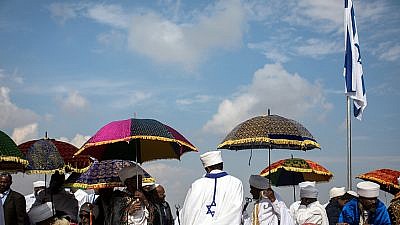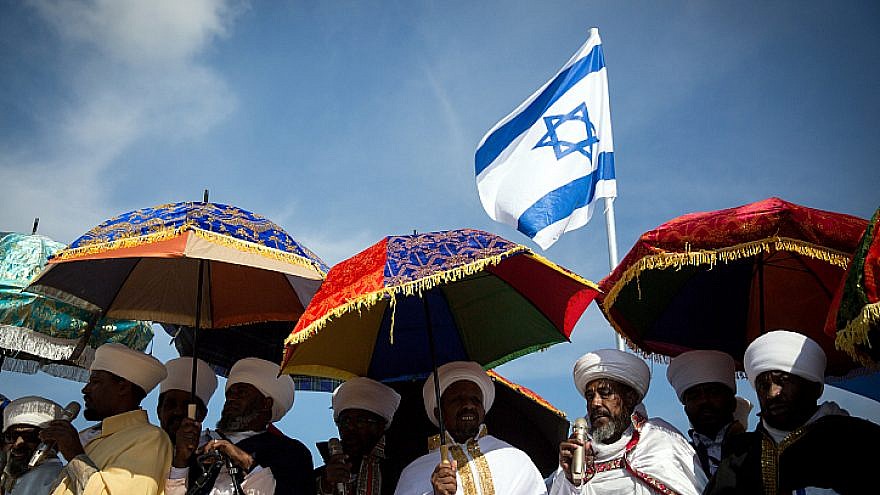Jewish Ethiopians celebrated the holiday of Sigd on Wednesday, with schools around Israel engaging students in special programming to teach about the unique Ethiopian Jewish holiday.
Sigd, a holiday of supplication and yearning to return to Zion believed to have begun in the 15th century, emphasizes the acceptance of the Torah, and is marked by communal prayer and fasting.
The word Sigd comes from the Aramaic word seged, meaning “to prostrate oneself, and may also relate to the Hebrew word for mosque, which is misgad. The Ethiopian word for synagogue is mesgid.

“This is a central holiday in the Jewish Ethiopian calendar, which we have celebrated for thousands of years,” Dr. Simcha Gathon, director of the Center for the Legacy of Ethiopian Jewry, who immigrated to Israel in 1984, said in an interview with The Media Line. “It’s a religious holiday with origins in the Bible that commemorates the giving of the Torah at Mount Sinai. We pray for peace in Zion, Jerusalem and for the people of Israel as whole.”
Israeli officials took part in celebrations in honor of the community. Israel’s Ministry of Culture and Sport and the Center for the Legacy of Ethiopian Jewry organized a special event in Jerusalem to mark the occasion.
At the event, Minister of Culture and Sport Miri Regev said Israel has “some collective soul-searching to do” to eradicate any racism against Ethiopians. Reports indicate that Ethiopians have higher incarceration rates and report discrimination in educational settings.
President Reuven Rivlin and Justice Minister Ayelet Shaked also called on leaders of the community to submit pardons to erase the criminal records of any minors or nonviolent criminals who may have had low-level run-ins with the law, such as disturbing the peace or consuming alcohol in public.
“I welcome the president and Justice Ministry’s decision,” Ethiopian-born Knesset member Avraham Neguise of the Likud Party told The Media Line. “It is very important to bring trust between the Ethiopian Jewish community and those who are enforcing the rule of law. This really gives an opportunity to correct [the past] and start a new life, especially for many young people.”
Approximately 95,000 Ethiopian Jews have made aliyah since 1958, with the largest waves coming in 1984 with “Operation Moses” and 1991 with “Operation Solomon.”
The Central Bureau of Statistics’ reported that 148,700 Jews of Ethiopian descent reside in Israel—87,000 who were born in Ethiopia, and 61,700 who were born in Israel. In 2017, an additional 1,467 Ethiopians immigrated to Israel.

























